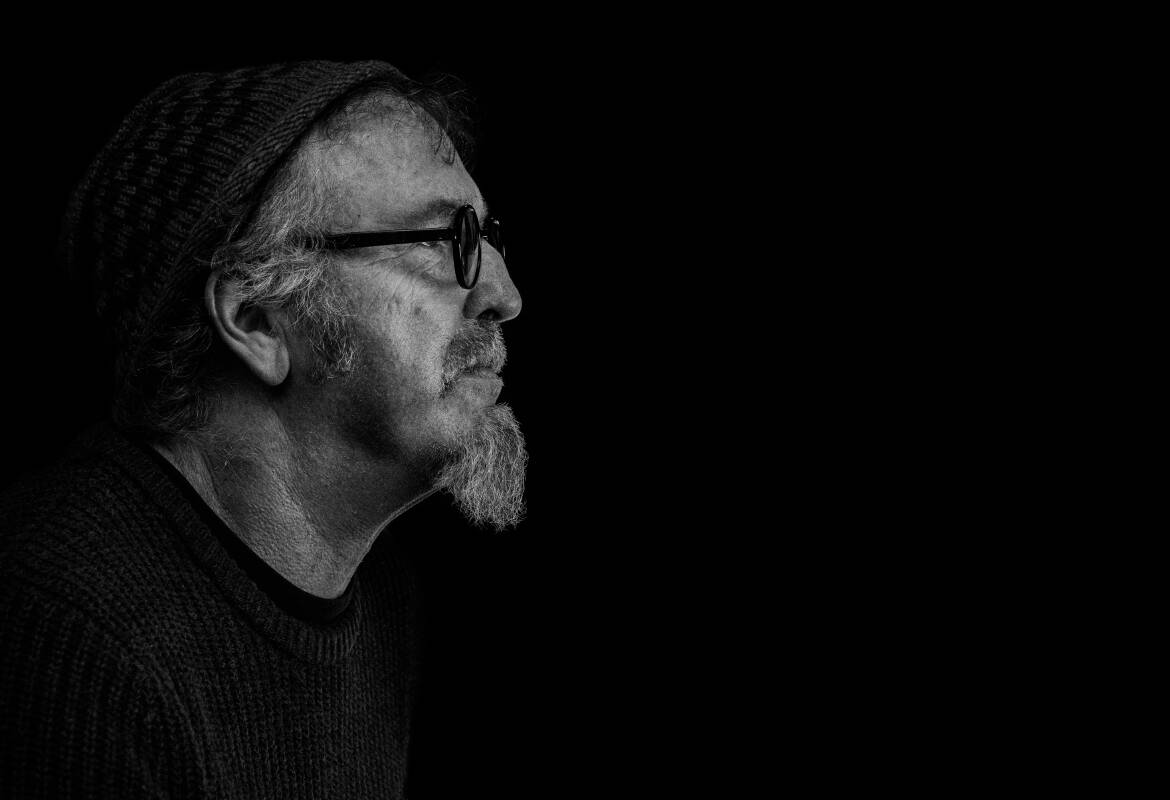
Jim Moginie's memoir is an eventful journey, metaphorically paddling through adventurous waters with eddies and rapids, whirlpools and rocky shores, and a few washouts, ending in a peaceful village on the outskirts of Cadamstown in County Offaly, in Ireland, which his ancestors called home.
The Silver River, at 290 pages and 50 chapters, frequently changes place and mood, delivering a collection of events and stories, realisations and explanations, in easily digestible bites.
"I enjoyed writing it," he says in a telephone interview. "It was so much fun to shape it, to get it to bounce off the page. Like when you write a song, it's a very similar process. This is an 80,000-word song."
Moginie, now 67, was an integral part of Midnight Oil, one of its founders, with Peter Garrett as front man. He was a team player, contributing significantly both in lyrics and music to the success of a band that became legendary not only in Australia but around the world.
The band always collaborated on their music and Moginie's musical fingerprints are there with Rob Hirst, Martin Rotsey and Garrett on all the hits.
The book is a detailed history of the band from Moginie's perspective, growing up in the comfortable surrounds of northern Sydney's suburbs and creating a musical sound like no other band in the land.
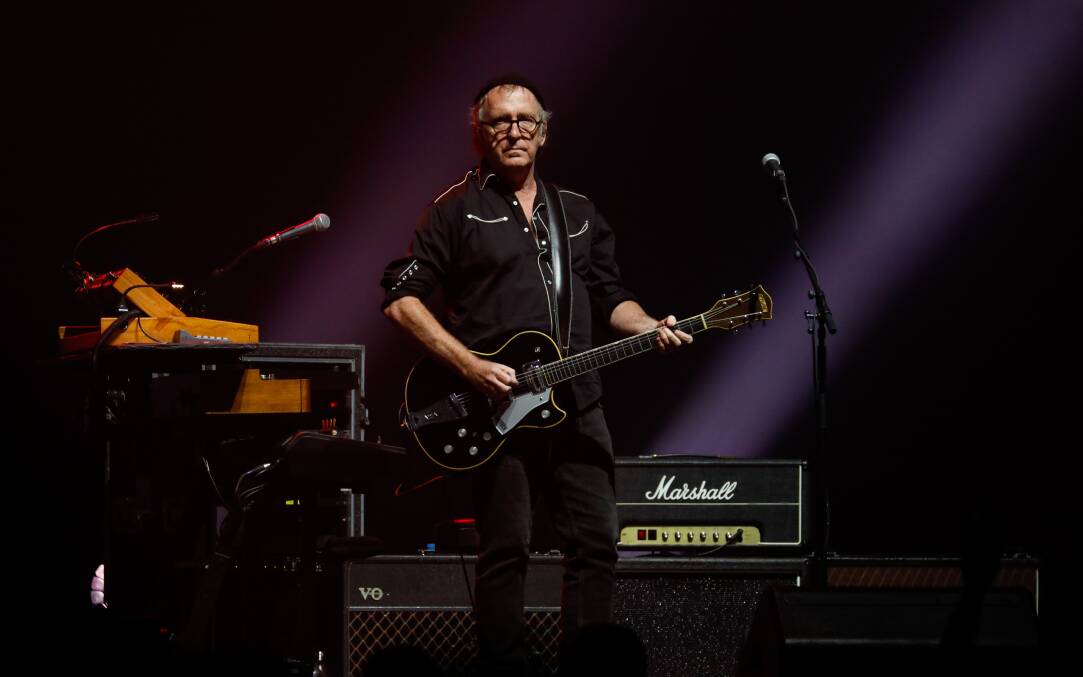
But it's also about Moginie's personal journey, and peels back the layers as he comes to grips with the fact his mum told him he was adopted when he was 11 years old, and eventually, 35 years later, he comes face to face for the first time with his birth mum in a modest home in Goulburn.
The Silver River in Ireland that delivers such a calming influence on Moginie is near the home of his birth father's family roots, 120 kilometres west of Dublin. Once he found his birth parents in Australia, he pushed on to discover the family homelands and many relatives in Ireland, and still to this day spends considerable time there.
He notes how he got his arse kicked trying to keep up with the local musicians in a session at a pub in Dingle in County Kerry way back in 2008, and came to Australia to make himself a better Irish musician before returning to the same pub three years later to try to hold his own. He also recounts being forced to get up and sing Beds Are Burning on the dance floor at 3am at an Irish wedding in Tullamore.
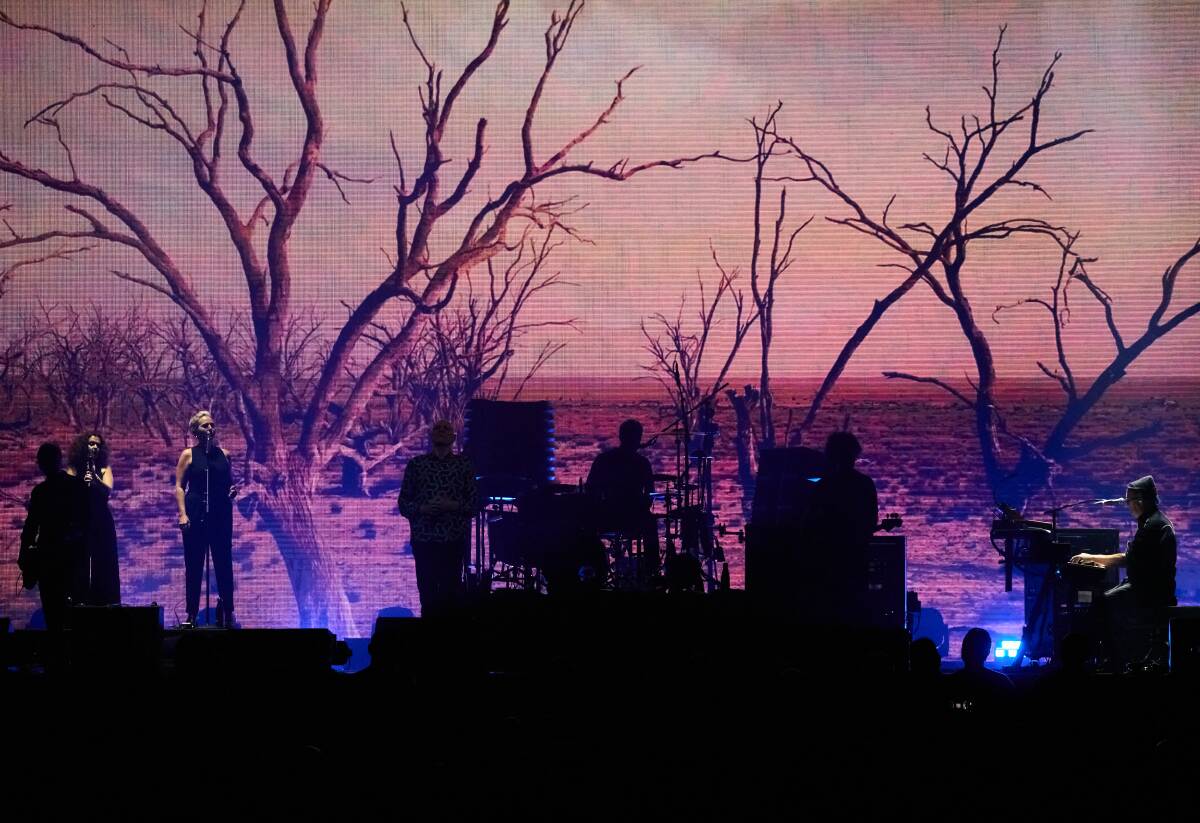
Moginie began writing The Silver River in 2010 during a visit to Ireland, where he had rented the bottom part of a house in Sligo on the west coast. He found he did most of the writing of the book in Ireland.
Perhaps it's not so surprising that it took so long for Moginie to write the book. The story of Midnight Oil is complex, only coming to a complete finish in 2022. And musically, Moginie is still alive, making his own way.
Emotionally, it's also taken Moginie decades to come to grips with being left for adoption as an infant and what impact that had on his life.
MIDNIGHT OIL
You couldn't blame Moginie if he called Midnight Oil great, but that's not his way, and certainly not Midnight Oil's way. Their commitment to justice and the environment was unwavering in their music and their actions. And the way they went about their business really became their signature, drawing admiration and love from fans for not only the music but the meaning of the music.
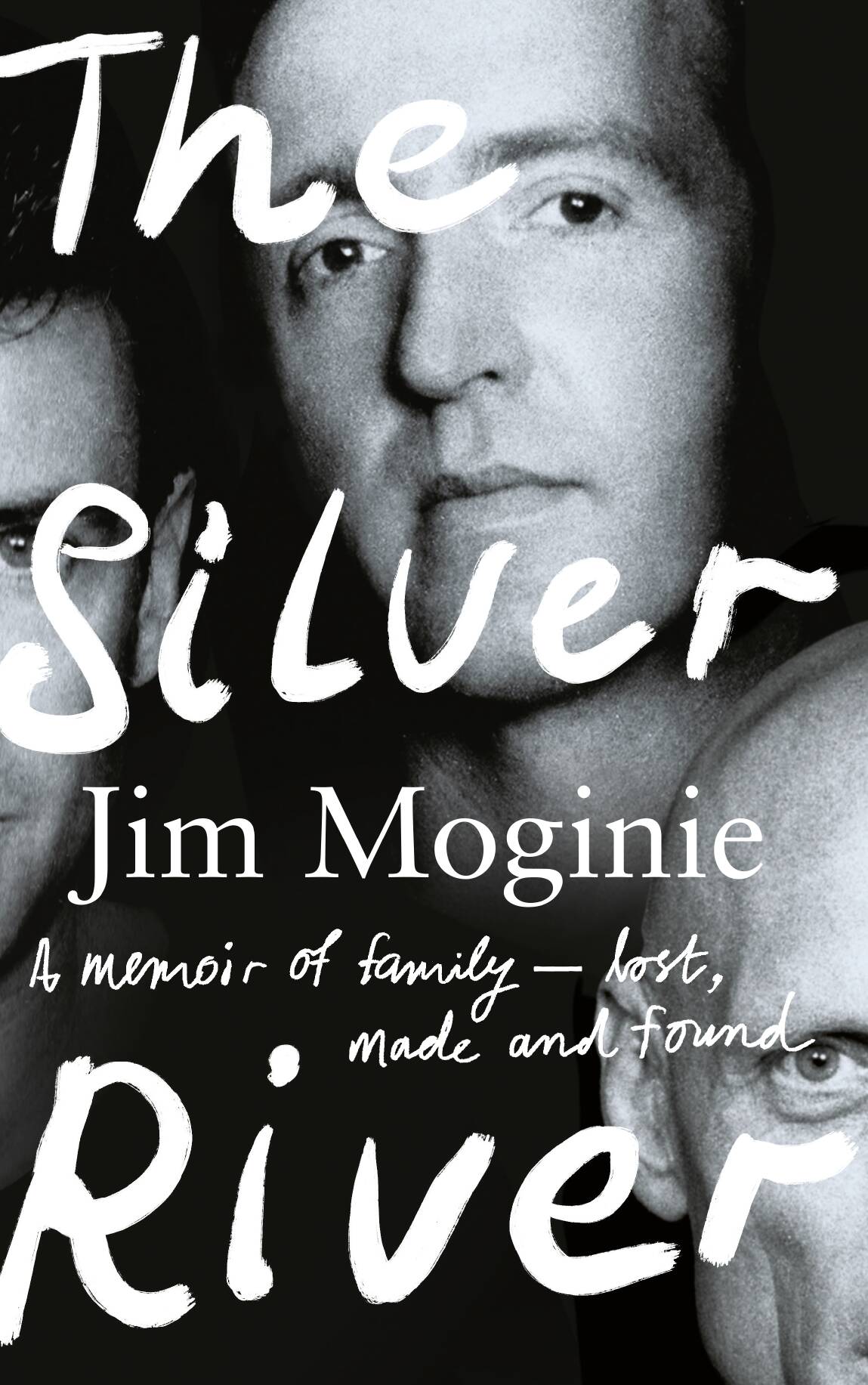
"I shy from the word, great, because it's just a superlative," Moginie says. "I think it was all about putting your head down and doing the work and not sort of basking in self congratulations.
"Even right to the end, it was all about making it sound good, and making the shows unique, and everything counts. The people were really watching on that last tour. They were really observing everything, they knew it was the last time, and they were taking it in a different way, the nuances of it they were noticing.
"We were never the ones to go to awards ceremonies or pat each other on the back ... I don't think we could have actually afforded a limo. I think we rode in one once by accident. We might have gotten in someone else's by mistake."
SONGWRITING
The Midnight Oil catalogue is vast. Sixteen albums and a collection of anthemic hits that stand the test of time. Power and The Passion. Wedding Cake Island. Blue Sky Mining. Beds Are Burning. The Dead Heart. Forgotten Years. Hercules. King of the Mountain. US Forces. The list goes on.
"It's just a great collaborative band," Moginie says.
"I wrote a lot of songs with Rob first. His songs were really melodic and easy to interpret. Other ones we came up with in kind of a roundabout, organic way. They never really went down a straight path as songs, they went through a process, which I just call the Midnight Oil process.
"And they became very individualistic, and quirky in a way. And that's part of our nature. A lot of our stuff, it wasn't commercial, especially in the beginning. It just didn't ... it had its own internal logic and Australian perspective. That was important for us to put that in, even place names, like Burnie. The Ambassador [Newcastle rock'n'roll venue] ended up in a song, Harrisburg.
"It was fun to put them in songs, rather than refer to Las Vegas or LA or something. We wrote what we knew and where we were from. That was the whole point of the band.
"The book is a love letter to the band, in a way. Kind of showing the processes of how some of the songs were made, not exactly how the magician does his trick of making the rabbit disappear, but how we actually went down that sometimes odd path of how we got to making a song."
WHAT IS OIL
Success often comes from a variety of talents, and Midnight Oil was the sum of its parts. For all of his own fears and worries, Moginie shows clarity when writing about key moments in the band's journey. For him, the band's performance at the Sydney Olympics was the "Everest" moment ("The Olympics was probably the biggest manifestation of the three things [we stood for], which was cultural, musical and political," he says.)
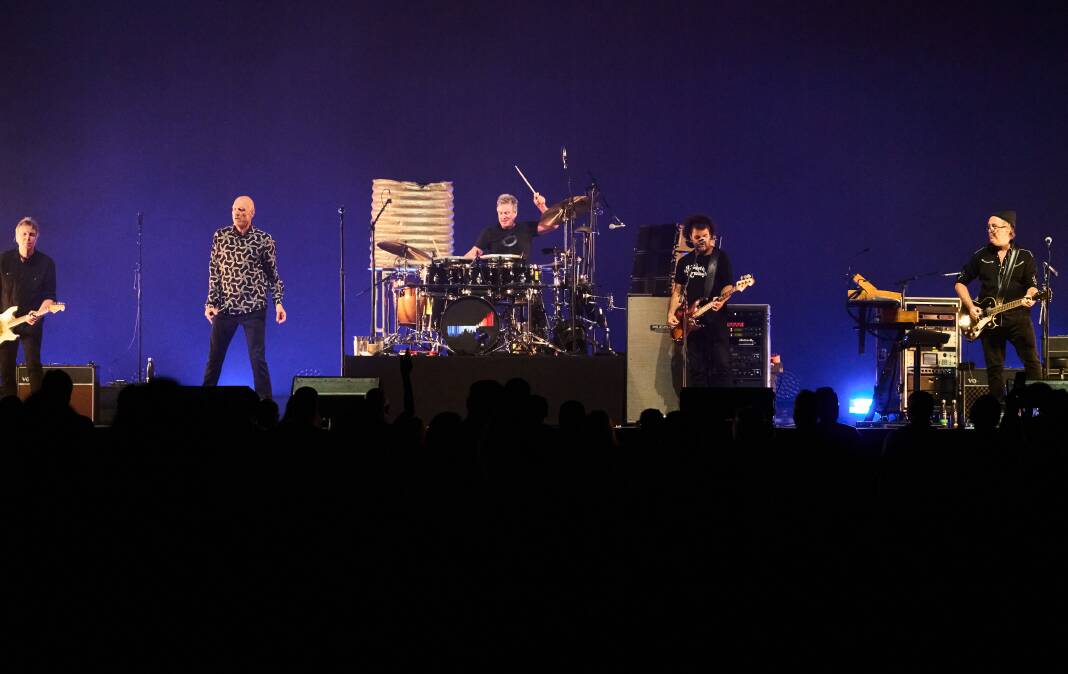
But it was only one in a number of times the band made serious statements through music, words and actions.
"This is our DNA and our spots," he says of their potent mix. "The leopard can't change its spots. I think when we went to America, over there we weren't about to turn into Aerosmith or Journey. We could have.
"We could have gotten American producers and come up with, like, heavy metal, guitar-driven, distorted power ballads. I mean that's something that just wasn't our thing. And writing things that were generic.
"We were always cut from this cloth and could never change those spots. And proudly so. In the end, looking back, writing the book made me realise how stubborn we were with a lot of the things we did, and we just stuck to our guns all the time.
"I think it stood us in good stead.
"People have said to me, 'You could have been as big as U2 or the Rolling Stones or something', I kind of go, 'No, it's fine'. The path that we were on was created by the people that were there, and the people in the room, and the inherent limitations of the people. That's what makes magic.
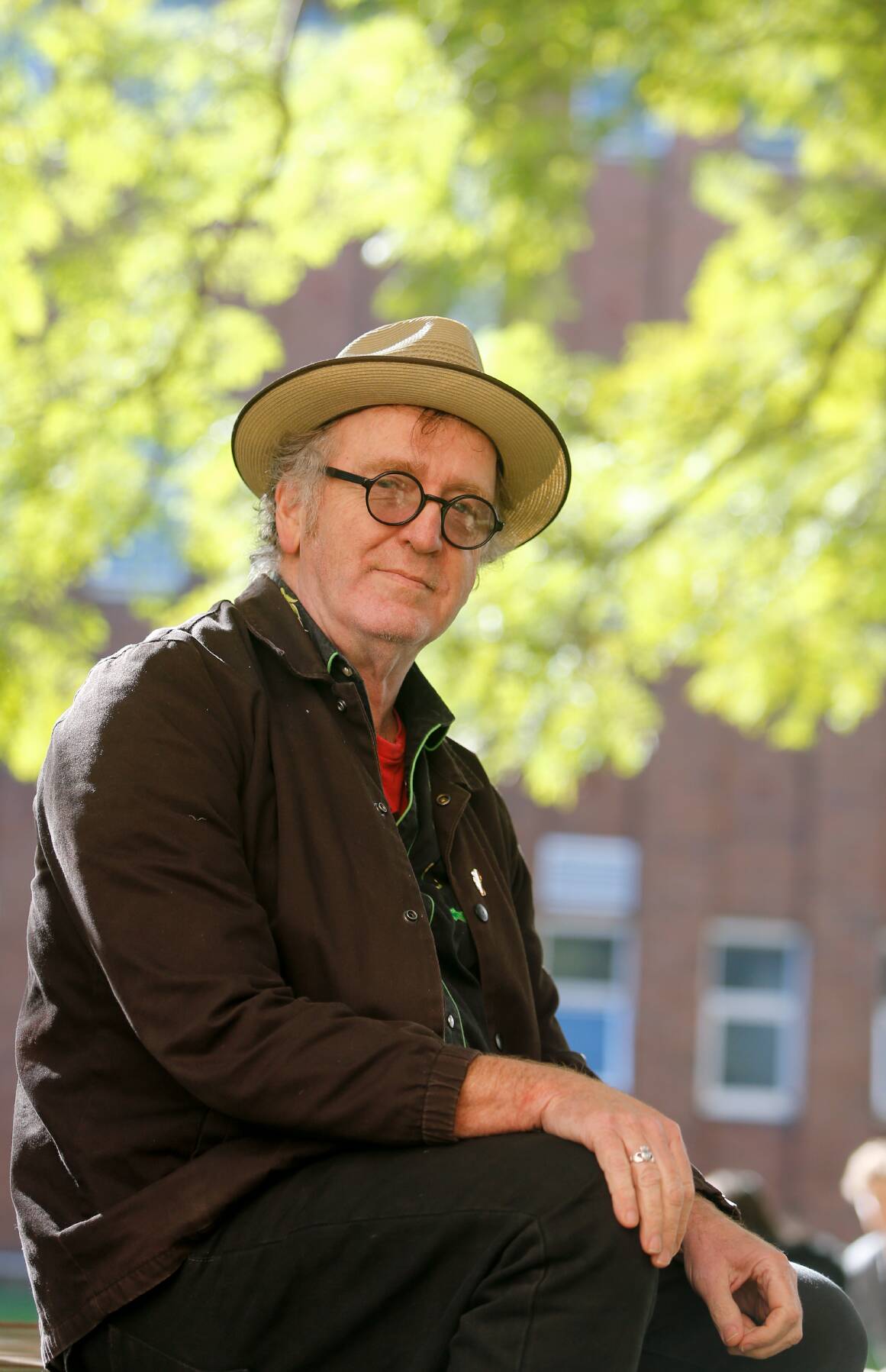
"It isn't that you could do everything. You just made your statement. It was important to us to be authentic in that way, and to be Australian. And just write about the things that were important to us, whether it was First Nations stuff, or environment, or nuclear, or any of that. That's just who we were as people, and that came through in the way we conducted business. We were always stubborn with things, wouldn't accept the first industry overtures to get us to do something. We'd always have to go through a process and endless band meetings. That was sort of our thing. To just masticate over the whole thing. What is 'Oil' and is not Oil. That was our litmus test."
ADOPTION
As if riding the wave of life as a member of a successful rock 'n' roll band wasn't enough, Moginie fought his own demons, with a marriage break-up and bouts of mental exhaustion. In the book, he tells of his concerted effort to find his birth parents, culminating in 2003 when his birth father, Brian McRedmond, called him out of the blue. Eventually, Moginie meets him face to face in 2003, at McRedmond's modest home in the Canberra suburb of Rivett, which then leads a short time later to meeting his birth mum, Susan (Anne) Maloney, at her home in Goulburn.
"My story was very lucky," he says.
"I found my natural parents, and they were both still alive. And I've got five full-blooded brothers and sisters, which is just incredible, that I didn't know about. I'm one of the lucky ones."
IRISH BLOOD
Moginie has spent considerable time making sense of his adoption. Since his memoir was published this month, adoption resources have contacted him to see if he would speak to groups and he says he will.
The silver lining for him is how comfortable he is with his Irish heritage.
"I needed to go to Ireland to find my birth family," he says.
"It was incredible, because I discovered all my improvising, and musicality, came out of that Irish thing. It made so much sense. While improvising on the stage, or making songs up, or sitting there at the piano chipping around being lost in music for hours and hours as a teenager."
His feelings about Irish people run deep. There's just a manner about them that's genuinely engaging, Moginie says.
"It's sort of how people are there," he says.
"The way poets are. It's a very literary people, even if they're illiterate. In terms of literature and poetry. It's in the water or something. I can't really explain it but I feel very at home when I go over, and I always have with Irish people every time I've met them down the track."
The Silver River by Jim Moginie (HarperCollins Publishers $34.99)







